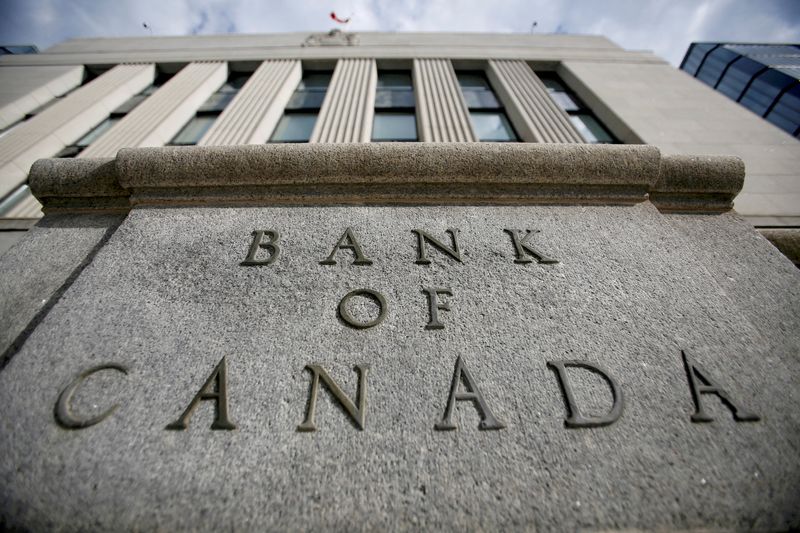
© Reuters. FILE PHOTO: A sign is pictured outside the Bank of Canada building in Ottawa, Ontario, Canada, May 23, 2017. REUTERS/Chris Wattie
By Steve Scherer
OTTAWA (Reuters) – The Bank of Canada (BoC) on Wednesday is expected to hike its key overnight rate by a quarter of a percentage point to a 22-year high of 5.00% as economic growth continues to fuel a tight labor market and sticky underlying inflation, analysts said.
Last month, the Canadian central bank raised its overnight rate to 4.75% – also the highest level since 2001 – after a five-month pause, saying monetary policy was not restrictive enough. It then said further moves would depend on the picture painted by the latest economic data.
While there have been some signs of cooling, economic growth has been resilient and the housing market has shown signs of picking up despite nine rate increases totaling 450 basis points since March of last year. The economy regained momentum in May, likely growing 0.4% on the month, after stalling in April.
The BoC will announce its decision at 10 a.m. EDT (1400 GMT).
“Inflation has been running above the Bank of Canada’s (2%) target for 27 consecutive months and there’s no end in sight,” Desjardins Group economists Royce Mendes and Tiago Figueiredo said in a note.
“We expect the Bank of Canada to raise its policy rate to 5.00% and leave the door open to more hikes this fall.”
Twenty of 24 economists surveyed by Reuters expect the central bank to lift rates by another quarter of a percentage point and then hold them there well into 2024. Money markets see more than a 70% chance of a rate hike on Wednesday, and are fully pricing in such a move by September.
Though headline inflation slowed to 3.4% in May, less than half of last year’s 8.1% peak, the three-month annualized rates of the BoC’s core measures just barely crept lower.
Canada added far more jobs than expected in June, according to data published on Friday.
Doug Porter, chief economist at BMO Capital Markets, said a rate hike on Wednesday is likely but not a “foregone conclusion” because the BoC could wait until September to increase borrowing costs.
“It just doesn’t seem like the economy has really suffered much from the very steep rate hikes of the past year,” Porter said. “And let’s face it, inflation is still above the Bank of Canada’s 2% target.”





